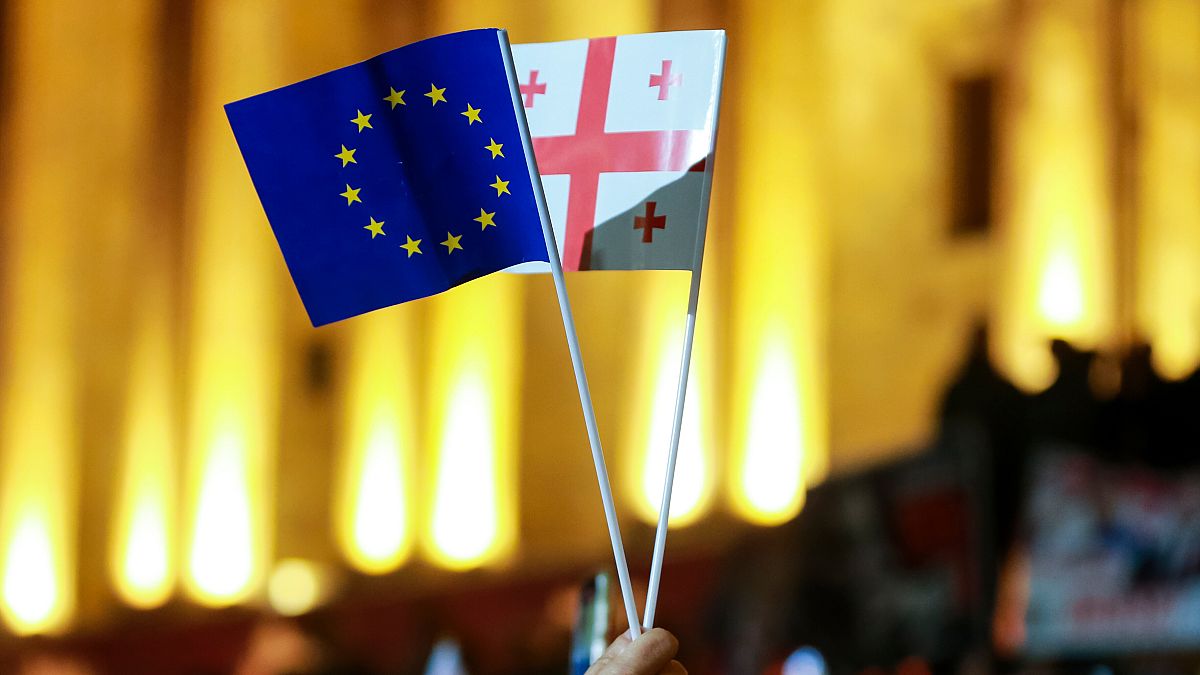The recent election campaign in Georgia, a nation of 3.7 million people, has been surrounded by controversy and allegations of vote rigging and Russian interference. President Salome Zourabichvili led protests outside parliament, claiming the election was rigged by the ruling party, Georgian Dream, supposedly with the help of Russia. The opposition parties, led by Giorgi Vashadze, have rejected the election results and are pushing for a new vote under international supervision. The US and the European Union have called for full investigations into the election results and have urged Georgia to address electoral deficiencies and move towards Europe.
Georgian Dream, founded by billionaire Bidzina Ivanishvili, has been accused of adopting authoritarian legislation similar to those used by the Kremlin to crackdown on freedom of speech and LGBTQ+ rights. The Central Election Commission announced that Georgian Dream received 54.8% of the vote in the recent election, prompting allegations of electoral fraud and manipulation. The EU has suspended Georgia’s membership application indefinitely due to a controversial “foreign influence law” passed in June. The election campaign was marked by intimidation, vote-buying, and violence, particularly in rural areas where instances of violations were more noticeable.
The Kremlin has denied interfering in the Georgian election, with spokesman Dmitry Peskov claiming that it was the West trying to influence the vote. The allegations of Russian interference have further intensified the political divisions in Georgia, with President Zourabichvili calling on Georgians to join protests against the alleged election rigging. Parliament speaker Shalva Papuashvili accused the president of attempting to destabilize the country and create a coup scenario. The tensions between the government and the opposition parties have escalated, with no immediate plans for resolution or talks between the two sides.
The European observers who monitored the election described it as taking place in a divisive environment, marred by intimidation, vote-buying, and physical violence. The campaign saw Georgian Dream using anti-Western and hostile rhetoric, promoting Russian misinformation, and conspiracy theories. The election outcome was seen as a crucial referendum on Georgia’s opportunity to join the EU, with many Georgians viewing the vote as a pivotal moment in the country’s European aspirations. Hungarian Prime Minister Victor Orbán, a close ally of Russian President Vladimir Putin, made a surprise visit to Georgia amid the election controversy, further complicating the situation.
Orbán’s visit to Georgia is likely to draw scrutiny from the EU, which has called for an independent investigation into the alleged vote rigging and urged Georgian authorities to fulfill their duty to ensure transparent and fair elections. President Zourabichvili has dismissed Orbán’s visit as a political play by a “special friend” of Georgian Dream, highlighting the complex geopolitical dynamics at play in the region. The aftermath of the election has left Georgia in a state of uncertainty, as both the government and the opposition parties remain at odds over the election results and the future direction of the country. As tensions continue to simmer, the international community is closely monitoring the situation in Georgia, with hopes for a peaceful resolution to the electoral crisis.











